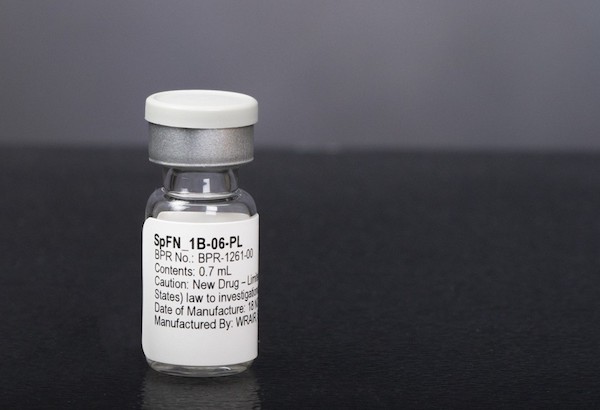US Army Develops COVID-19 Vaccine That Could Work Against All Variants
By Alexa Heah, 27 Dec 2021

Scientists at the Walter Reed Army Institute of Research (WRAIR) have developed a new COVID-19 vaccine that could protect against all of the coronavirus-causing disease’s variants.
As the world takes to the effects of Omicron, healthcare providers are once again overwhelmed by the rising number of infections. At the moment, most countries have elected to vaccinate citizens with a three-step booster program, though it’s not known if the current shots will be effective against a future variant.
Hence, researchers at WRAIR have come up with a vaccine that potentially works against all variants of COVID and SARS viruses, including those that may spread in the future. To create the novel vaccine, the team made use of a new technology called a Self-Assembling Protein Nanoparticle.
According to Insider, it comprises a small particle with multiple “faces” carrying part of a spike protein that can help beef up the host’s immune system. This time, the scientists attached spike proteins from multiple strains of COVID, thus creating a vaccine that spans across all of the illness’ possible variants.
Results from the agency’s study showed that non-human primates were protected from COVID-19 and its variants after receiving two doses of the vaccine. It’s currently awaiting the findings from human clinical trials, which will then be able to compare it against the vaccines already in circulation.
“The repetitive and ordered display of the coronavirus spike protein on a multi-faced nanoparticle may stimulate immunity in such a way as to translate into significantly broader protection,” explained Dr Kayvon Modjarrad, Director of the EIDB at WRAIR.
According to Interesting Engineering, the team also worked on another vaccine—called the Spike Receptor-Binding Domain Ferritin Nanoparticle (RFN)—which works against smaller sections of the COVID spike protein.
Preliminary results from this shot have been published in the Proceedings of the National Academy of Sciences journal, with findings showing that it offered similar protection to the first vaccine.
“Our investment in developing a next-generation vaccine is an important step towards getting ahead of COVID-19 and future disease threats,” said Dr Nelson Michael, Director of the Center for Infectious Diseases Research at WRAIR.
[via Interesting Engineering, cover image via the US Army]





